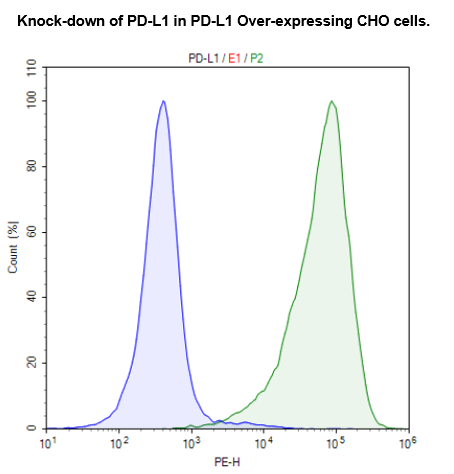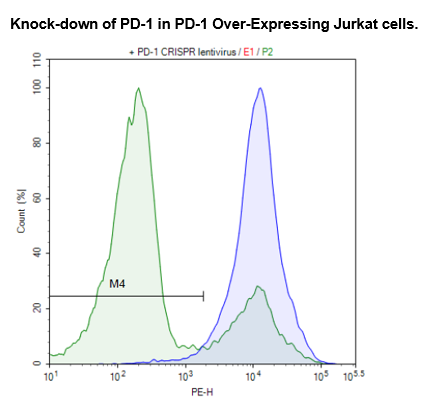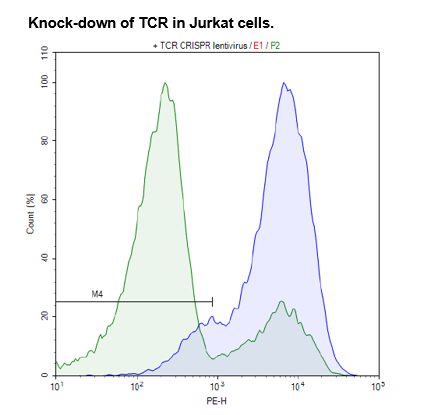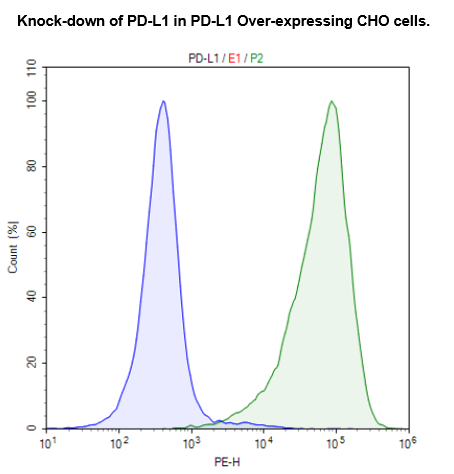
PD-L1 CRISPR/Cas9 Lentivirus (Integrating)
78057
Product group Expression
Overview
- SupplierBPS Bioscience
- Product NamePD-L1 CRISPR/Cas9 Lentivirus (Integrating)
- Delivery Days Customer7
- CertificationResearch Use Only
- Scientific DescriptionThe binding of Programmed Cell Death Protein 1 (PD-1), a receptor expressed on activated T-cells, to its ligands, PD-L1 and PD-L2, negatively regulates immune responses. The PD-1 ligands are found on most cancers, and the PD-1:PD-L1/2 interaction inhibits T-cell activity and allows cancer cells to escape immune surveillance. The PD-1:PD-L1/2 pathway is also involved in regulating autoimmune responses, making these proteins promising therapeutic targets for a number of cancers, as well as multiple sclerosis, arthritis, lupus, and type I diabetes. The PD-L1 CRISPR Lentiviruses are replication incompetent, HIV-based, VSV-G pseudo-typed lentiviral particles that are ready to be transduced into almost all types of mammalian cells, including primary and non-dividing cells. The particles contain a CRISPR/Cas9 gene driven by an EF1a promoter, along with 4 sgRNA (single guide RNA) targeting human PD-L1 (Programmed Cell Death 1 Ligand 1, CD274, B7 homolog 1 (B7-H1), GenBank accession #NM_021893) driven by a U6 promoter (Figures 1 and 2). The integrating lentivirus integrates randomly into the cells genome to express both the Cas9 and sgRNA. Puromycin selection increases the knockout efficiency by forcing high expression levels of both Cas9 and the sgRNA, and can be used with the integrating lentivirus to quickly and easily achieve high knockdown efficiencies in a cell pool. Efficiencies also depend on the cell type and the gene of interest.
- Storage Instruction-80°C
- UNSPSC41106621





